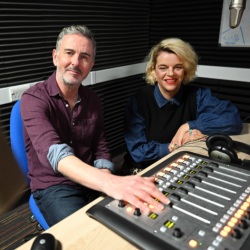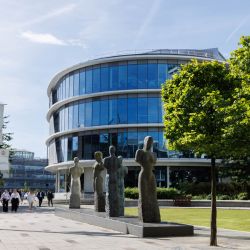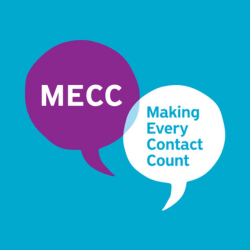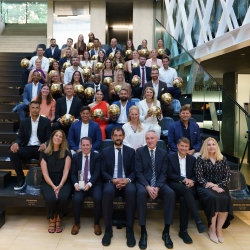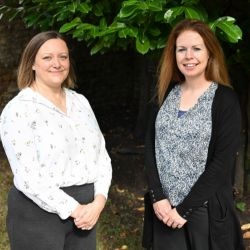-
Study
-
Undergraduate
- UCAS Clearing & Confirmation 2025
- Application Guides
- UCAS Exhibitions
- Foundation Years
- School & College Outreach
- Information for Parents
-
Postgraduate
- Application Guide
- Postgraduate Research Degrees
- Flexible Learning
- Change Direction
- Register your Interest
-
Student Life
- Students' Union
- The Hub - Student Blog
- Accommodation
- Northumbria Sport
- Support for Students
-
Learning Experience
- Real-World Learning
- Research-enriched learning
- Graduate Futures
- The Business Clinic
- Study Abroad
-
-
International
International
Northumbria’s global footprint touches every continent across the world, through our global partnerships across 17 institutions in 10 countries, to our 277,000 strong alumni community and 150 recruitment partners – we prepare our students for the challenges of tomorrow. Discover more about how to join Northumbria’s global family or our partnerships.
View our Global Footprint-
Quick Links
- Course Search
- Undergraduate Study
- Postgraduate Study
- Information for Parents
- London Campus
- Northumbria Pathway
- Cost of Living
- Sign up for Information
-
International Students
- Information for Students
- International Events
- Application Guide
- Entry Requirements and Education Country Agents
- Global Offices
- English Requirements
- English Language Centre
- International student support
- Cost of Living
-
International Fees and Funding
- International Undergraduate Fees
- International Undergraduate Funding
- International Masters Fees
- International Masters Funding
- International Postgraduate Research Fees
- International Postgraduate Research Funding
-
International Partners
- Agent and Representatives Network
- Global Partnerships
- Global Community
-
International Mobility
- Study Abroad
- Information for Incoming Exchange Students
-
-
Business
Business
The world is changing faster than ever before. The future is there to be won by organisations who find ways to turn today's possibilities into tomorrows competitive edge. In a connected world, collaboration can be the key to success.
More on our Business Services -
Research
Research
Northumbria is a research-rich, business-focused, professional university with a global reputation for academic quality. We conduct ground-breaking research that is responsive to the science & technology, health & well being, economic and social and arts & cultural needs for the communities
Discover more about our Research-
Quick Links
- Research Peaks of Excellence
- Academic Departments
- Research Staff
- Postgraduate Research Studentships
- Research Events
-
Research at Northumbria
- Interdisciplinary Research Themes
- Research Impact
- REF
- Partners and Collaborators
-
Support for Researchers
- Research and Innovation Services Staff
- Researcher Development and Training
- Research Ethics and Integrity
- University Library
- Vice Chancellors Fellows
-
Research Degrees
- Postgraduate Research Overview
- Doctoral Training Partnerships and Centres
- Academic Departments
-
Research Culture
- Research Culture
- Research Culture Action Plan
- Concordats and Commitments
-
-
About Us
-
About Northumbria
- Our Strategy
- Our Staff
- Our Schools
- Place and Partnerships
- Leadership & Governance
- University Services
- History of Northumbria
- Contact us
- Online Shop
-
-
Alumni
Alumni
Northumbria University is renowned for the calibre of its business-ready graduates. Our alumni network has over 250,000 graduates based in 178 countries worldwide in a range of sectors, our alumni are making a real impact on the world.
Our Alumni - Work For Us
What will I learn on this module?
This module will introduce you to research in relation to sport, exercise and rehabilitation. The module will guide you through the research process involved in generating new information via scientific methods. The module will provide both a theoretical and practical introduction to basic experimental approaches, data analysis techniques and report writing, and demonstrate the usefulness and limitations of research-generated information. You will gain an understanding of fundamental concepts and principles of conducting research and interpreting the findings.
You will learn about the research process (e.g., developing a research question and ethical considerations) and be introduced to the scientific method such as the basic concepts of planning, collecting, organising, and analysing data and report-writing in sport, exercise and rehabilitation. Learning materials will be delivered via interactive lectures, hands-on workshops, directed tasks and independent study. You will learn the basics about managing, analysing and interpreting data in practical-computer-lab workshops comprising the quantitative method of enquiry. You will also be introduced to basic methods of working with data from interviews and focus groups comprising the qualitative method of enquiry. For each of the methods, you will learn to identify when it is suitable to use; how to run the analysis; how to report its findings to experts and lay people; and how to use these findings to inform your critical judgement about your own research and that of others.
How will I learn on this module?
On this module you will learn through a combination of lectures, workshops and tutorials, along with independent study. The workshop components of the module will be using a variety of statistical software. The lectures introduce you to concepts and techniques, which you then learn to apply in your workshops. These (lectures) will be recorded to aid understanding. Additional tutorials are available to clarify problematic issues, discuss how you can apply these techniques to the research you carry out in other modules, etc. You will be provided with references to relevant literature for your independent study. To further guide your independent study, a rich array of exercises will be available for you via the eLearning Portal. Online discussion groups encourage all students to form an interactive learning community. The thought topics and the assessment task, will provide you with skills relevant to your core discipline while gaining an appreciation of the Sport discipline as a whole.
How will I be supported academically on this module?
Module information, assessment requirements and expectations, and important module announcements will be made through the eLP module site. Material to support your learning (such as lecture slides and directed tasks) will be uploaded in advance of sessions. You will be provided with content verbally and guided through tasks during timetabled sessions. A dedicated assessment session will afford you the opportunity to ask assessment related questions in class. The practical-sessions will provide you with the opportunity to engage with the module tutors to problem-solve the tasks. The Module Leader is there to support you with any queries that you may have about the module content, and all staff members provide tutorial time outside of class time. Module tutors will provide you with the necessary information on how to arrange a tutorial. Exam-like multiple choice questions will be available for you to practice the exams and to monitor your own progress. Your summative assessments will be carried out via online testing.. There will be the opportunity to discuss your feedback with a member of staff during a tutorial. There are also further academic skills support available from the University Library services where you can gain access to study skills / academic writing and support materials, as well as links to booking both on and off campus study skills sessions.
What will I be expected to read on this module?
All modules at Northumbria include a range of reading materials that students are expected to engage with. Online reading lists (provided after enrolment) give you access to your reading material for your modules. The Library works in partnership with your module tutors to ensure you have access to the material that you need.
What will I be expected to achieve?
Knowledge & Understanding:
1. Describe the systematic process of the scientific method and its application to quantitative and qualitative problems
2. Demonstrate a basic understanding of experimental design
3. Demonstrate a theoretical understanding of basic statistical techniques
Intellectual / Professional skills & abilities:
4. Independently identify different types of research problems relevant to sport, exercise and rehabilitation and conduct and interpret basic analysis of related data
Personal Values Attributes (Global / Cultural awareness, Ethics, Curiosity) (PVA):
Demonstrate a basic understanding of ethical principles as they relate to research conducted on human participants
How will I be assessed?
Formative assessment:
Mock multiple-choice exam questions will allow you to continuously monitor your progress on MLOs: 1-5.
Summative assessment:
Four 30 minute online multiple choice tests, during the semester, form a portfolio of your research knowledge. Each test constitutes 25% of the mark.
You will receive feedback via eLearning Portal. There will be the opportunity to discuss your feedback with a member of staff during a tutorial, if you request.
Pre-requisite(s)
None
Co-requisite(s)
None
Module abstract
Have you ever wondered how we might find out what the optimal training load is to improve an athlete’s performance, how exercise may improve mental health outcomes, or how athlete’s value the relationship with their coaches? This module will introduce you to the research process involved in answering unknown questions in relation to sport, exercise and rehabilitation. You will be introduced to and guided through the research process involved in generating new information via scientific methods. The module will provide both a theoretical and practical introduction to basic experimental approaches and data analysis techniques and demonstrate the usefulness and limitations of research-generated information.
Through this module you will develop skills that will be crucial for you throughout all three years of your programme. You will need them to develop, analyse, and interpret your own research and in order to fully understand and evaluate the research of others. Your understanding will be checked incrementally as your knowledge of research methods progresses, ensuring you receive regular feedback on your performance.
A solid understanding of research process and data analysis is a skill valued by many employers. Many students approach this module with trepidation; but we know from experience that students who engage with the module perform well on it, even if they don’t have a strong background in maths/research. Moreover, most students enjoy learning about fundamentals that can then be applied in hands-on exercises.
Course info
Credits 20
Level of Study Undergraduate
Mode of Study 3 years Full Time
Department Sport, Exercise and Rehabilitation
Location City Campus, Northumbria University
City Newcastle
Start September 2025
All information is accurate at the time of sharing.
Full time Courses are primarily delivered via on-campus face to face learning but could include elements of online learning. Most courses run as planned and as promoted on our website and via our marketing materials, but if there are any substantial changes (as determined by the Competition and Markets Authority) to a course or there is the potential that course may be withdrawn, we will notify all affected applicants as soon as possible with advice and guidance regarding their options. It is also important to be aware that optional modules listed on course pages may be subject to change depending on uptake numbers each year.
Contact time is subject to increase or decrease in line with possible restrictions imposed by the government or the University in the interest of maintaining the health and safety and wellbeing of students, staff, and visitors if this is deemed necessary in future.
Useful Links
Find out about our distinctive approach at
www.northumbria.ac.uk/exp
Admissions Terms and Conditions
northumbria.ac.uk/terms
Fees and Funding
northumbria.ac.uk/fees
Admissions Policy
northumbria.ac.uk/adpolicy
Admissions Complaints Policy
northumbria.ac.uk/complaints

